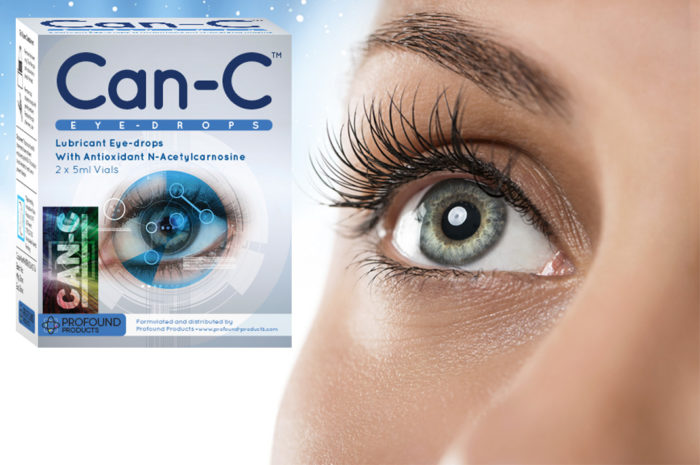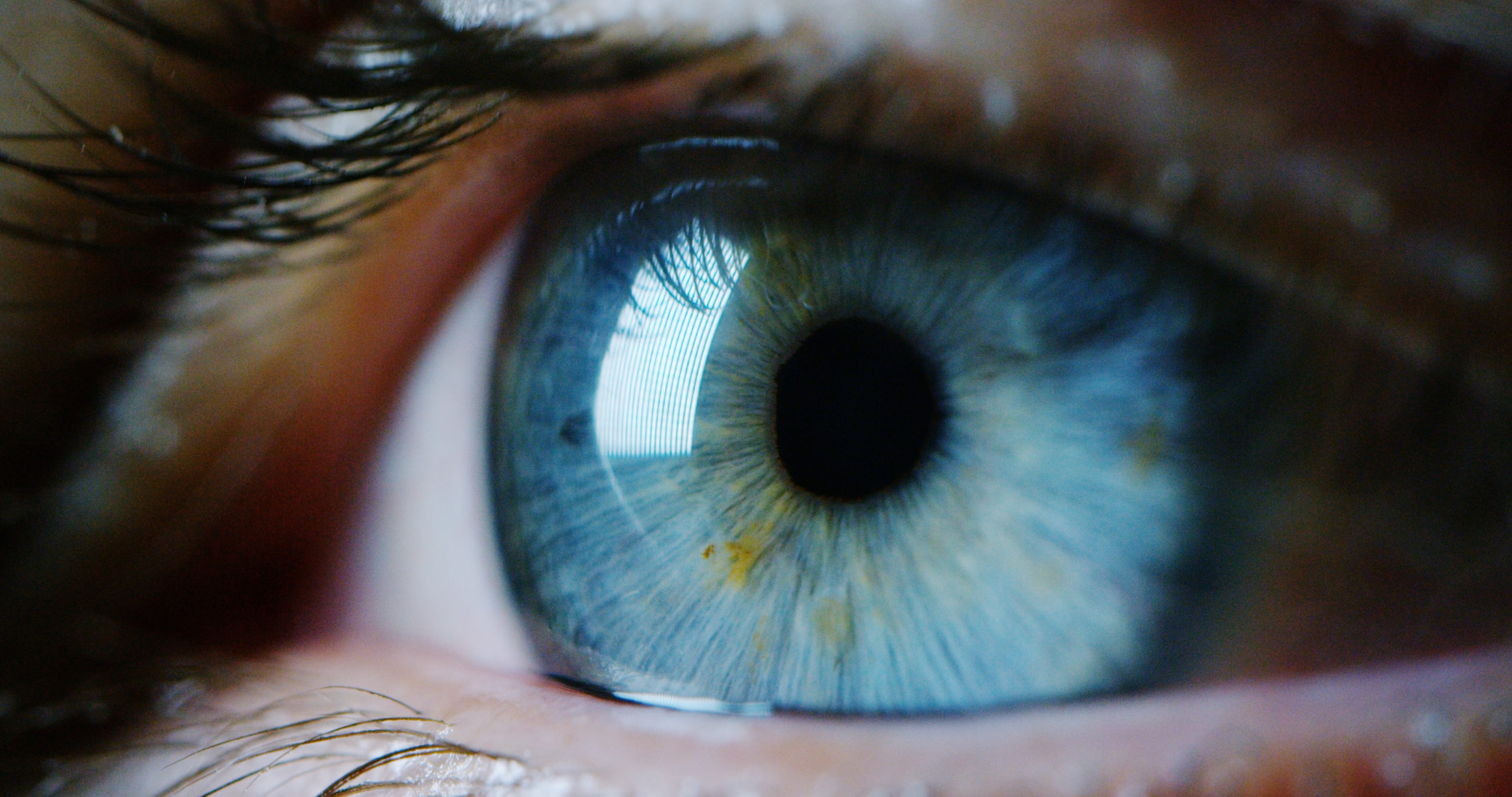
Can-C™ Anti-Cataract Eye Drops
November 25th, 2016What are cataracts?
Cataracts are a distressing eye condition that can lead to blurred vision and eventually, if untreated, to blindness. They cause changes in the lens of the eye, which slowly becomes cloudy and difficult to see through.
Cataracts usually affect older people. Twenty-five per cent of people over sixty-five, and fifty per cent of people over eighty have them. Worldwide, there are twenty-eight thousand new cases of cataracts every day.
There are over 1.3 million cataract operations every year in the USA alone, costing more than 3.5 billion dollars. Surgery can be effective, but there are sometimes complications that mean additional operations are needed. Of course, there are many countries that cannot afford to offer this sort of treatment, and blindness caused by cataracts is quite common in some of them.
Is there any alternative to surgery?
These days, a form of eye drops developed by a company called IVP (Innovative Vision Products), the patent holder, could provide a way to treat cataracts without surgery. The eye drops are called Can-C™ and their unique formula may be helpful in treating other eye conditions as well as cataracts, such as:
- Dry eye syndrome: caused when the eye does not produce enough tears to keep it moist
- Computer vision syndrome: caused by staring at a computer screen for long periods of time without interruption. Results include headaches, neck pain, and fatigue. You may also have eyestrain; dry, red or irritated eyes; blurred or double vision, and you might feel dizzy
If you have contact lenses, especially the soft ones, Can-C™ eye drops (which contain lubricants) may make them more comfortable to wear for longer periods of time. Can-C™ drops may also protect your eyes against inflammation and other diseases of the eye.
Can-C™ eye drops contain powerful anti-ageing ingredients that help to reverse damage, mostly caused by ageing, to the very sensitive tissues of the eye.
Can-C™ eye drops have helped thousands of people reverse their cataracts without surgery, leaving the natural lens in place rather than an artificial one.
How to use Can-C™ eye drops
You should follow your doctor’s instructions. Usually, you will need 1 or 2 drops in each eye, 1 to 4 times each day. If you are not sure how to use the drops, this is what to do:
- Lean your head back and look up. Let one eye drop fall into the eye then close it slowly. Try not to blink, and keep the eye closed for 60 seconds. Repeat this if you are using two drops. Then repeat (either one or two drops) in the other eye.
- If the eye becomes irritated or inflamed in any way after using the product, stop immediately and consult your doctor.
- Be careful not to touch the tip of the eyedropper, or put it down on any surface, as it might pick up bacteria.
- Replace the cap immediately after using the drops. Open only one container of solution at a time and do not allow anyone else to use it. If you open a container but have not used it up after 30 days, you should throw it away and open a new one when you need it.
- Do not use the drops if the seal is broken or if the solution is cloudy or changes colour and do not use the product past its expiry date.
- Keep the drops in the refrigerator but do not freeze them. Keep them out of the light, especially sunlight.
This product is not recommended for children under 12 years of age.
Can-C™ eye drops start to have an effect after only 1 month of use. For maximum effect, you should use them for between 3 and 5 months. They work best if used as soon as possible after the cataract is discovered.
Frequently Asked Questions About Can-C™ Eye Drops
Disclaimer: The following answers are based on the “average patient”. Please note that only your own doctor can say what is right for you.
When did Can-C™ enter the market?
2001, and in the intervening years thousands of people have cured their cataracts using Can-C™ without surgical intervention.
What makes Can-C™ Different to competing drops on the market?
Can-C™ is the ONLY and original eye-drop formula based on the original Russian research and trials that is approved and patented by Innovative Vision Products (IVP).
The main ingredient is made in Japan and is very highly purified. Russian trials showed that only the purest form of this ingredient is effective and this form is the one used in Can-C™.
Can Vegans use Can-C™ eye drops?
They are suitable for both Vegans and Vegetarians as there are no animal products involved, they are 100% plant based.
Can you use Can-C™ at the same time as other common eye supplements like lutein or zeaxanthin?
We do not usually recommend this. The results may be less effective if you do. You should stop taking lutein for at least the first 6 months of using Can-C™. After the 6 months have passed, you can start taking Lutein again.
Can you use Can-C™ at the same time as Xalatan® eye-drops for glaucoma?
There have been no problems so far, and using both may be beneficial. However, the manufacturers have not tested every possible combination.
Can I use vitamin A and E supplements at the same time as Can-C™?
The inventor, Dr. Babizhayev, says that using these vitamins actually on the body may not be a good idea, but that it is fine to take them by mouth.
Why does the Can-C™ packaging say it is an eye lubricant and not a treatment for cataract?
Can-C™ is for the relief of dry eyes. It is not yet FDA-approved as a treatment for cataracts so it is not possible to say that it is. It is extremely expensive to apply for this sort of approval and, as Can-C™ is a natural product, it would be very difficult to obtain a patent.
Do Can-C™ eye drops work for other eye conditions?
Dr. Mark Babizhayev and IVP, the inventors of Can-C™ eye-drops, say it may be useful in the treatment of some forms of glaucoma.
Can Diabetics use Can-C™?
Yes. Dr. Babizhayev, the inventor, recommends them.
Can an individual who has had cataract surgery use Can-C™?
Yes. Although drops will not, of course, affect a plastic replacement lens! Can-C™ will help to prevent or at least delay further problems.
I wear contact lenses, will Can-C™ still work?
Yes. They can be useful in two ways. They can help to reduce pain caused by long periods wearing contact lenses, and they contain lubricants to make the lenses more comfortable.
Is there a limit to how long you can use Can-C™? I have been using one drop in each eye, twice a day, for about 2 years.
As you probably know, clinical trials lasted 2 years and there were no signs of any problems.
What do patients usually notice first, when they are using Can-C™?
They usually say they can see better when they are driving at night. Next comes a better perception of color…then they discover that they can read small text better than before. They do better on tests at the optician’s when they have to read letters (the ones that get smaller and smaller!) from the board.
How long does it take to reduce the size of cataracts?
It may take several months. Human trials on people with age-related cataracts show that using the drops twice a day helps 90 per cent of people to have sharper and clearer vision. After using the drops for 24 months, the cataracts of people in the one test group did not get any larger. The vision of people in another test group (that did not use Can-C™ drops) got worse.
Vision is very precious but how many of us take it for granted? We hardly think about it until, as we are getting older, it starts to go wrong! When that happens, we need more and more light to see clearly and we need reading glasses for very small print. There is also a risk of diseases of the eye as well as cataract, for example glaucoma and macular degeneration.
Macular degeneration does not mean complete blindness but can make it hard to recognize faces, drive, read or just live a normal life. Your family history and things like smoking might also have a part to play.
It is important to remember that the health of your eyes depends on your general health.
Please note that taking Can-C™ capsules (in addition to using the drops) can speed things up.







